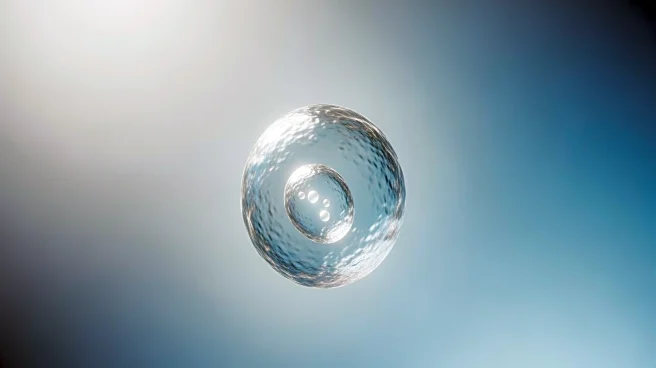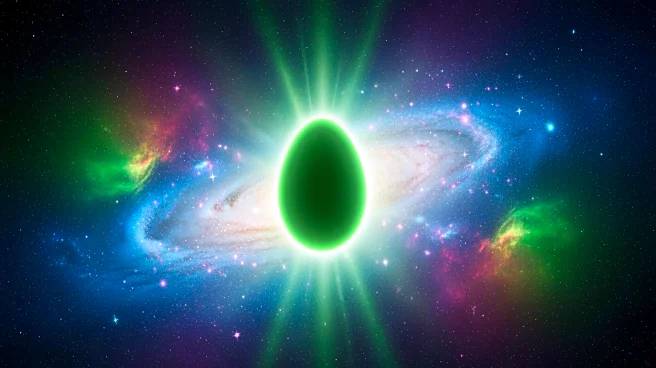What's Happening?
Researchers have discovered a cell with a highly reduced genome, challenging traditional definitions of life. The cell, identified as Candidatus Sukunaarchaeum mirabile, has a genome of just 238,000 base pairs, significantly smaller than previously known
cells. This discovery was made by Takuro Nakayama and his team at the University of Tsukuba, who isolated the cell from seawater samples. The cell lacks genes for basic metabolic functions, relying entirely on a host for survival. This finding pushes the boundaries of our understanding of cellular life, suggesting that life can exist in forms that are barely self-sufficient.
Why It's Important?
The discovery of Sukunaarchaeum mirabile has profound implications for our understanding of life and its evolution. It challenges the notion that cells must possess certain metabolic capabilities to be considered alive. This organism's reliance on a host for survival raises questions about the nature of symbiotic relationships and the evolution of cellular life. The findings could lead to new insights into the origins of life and the development of complex organisms. Additionally, this discovery may have implications for biotechnology, as understanding minimal life forms could inform the design of synthetic cells and bioengineering applications.
What's Next?
Further research is needed to explore the ecological role and evolutionary history of Sukunaarchaeum mirabile. Scientists will likely investigate its interactions with host organisms and the potential benefits or detriments of these relationships. The study of minimal cells could also lead to advancements in synthetic biology, where researchers aim to create artificial life forms with tailored functions. As the scientific community continues to explore these questions, collaborations across disciplines will be crucial to fully understand the implications of this discovery.
Beyond the Headlines
The discovery of a minimal cell raises ethical and philosophical questions about the definition of life. It challenges the criteria used to classify organisms and may influence debates on what constitutes living entities. This finding also highlights the complexity and diversity of life, prompting a reevaluation of how life is studied and understood. As researchers delve deeper into the nature of minimal cells, they must consider the broader implications for science, ethics, and society.















